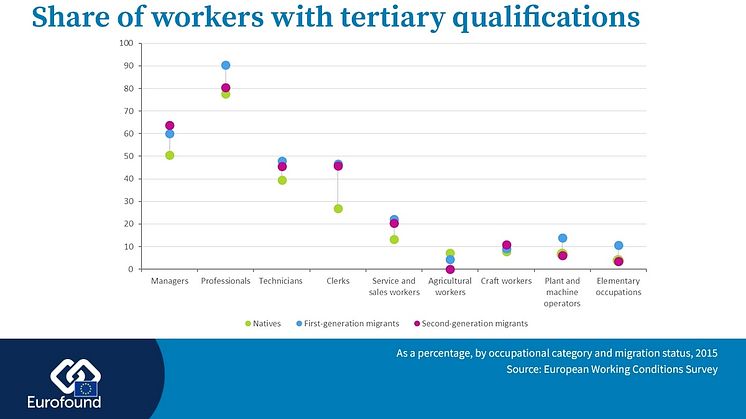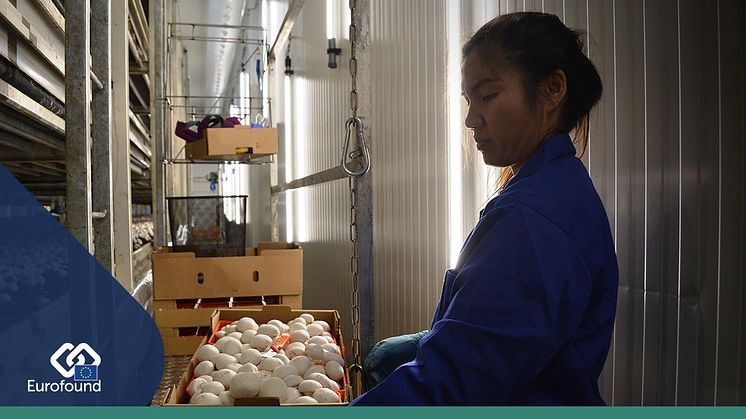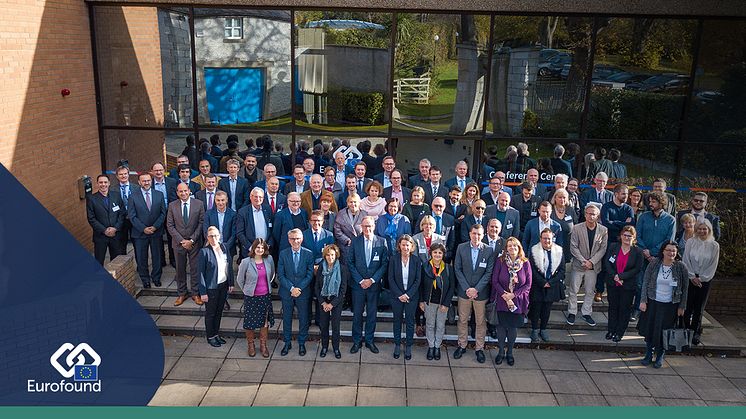Europe’s low-carbon transition makes economic sense
Europe’s economy, and particularly the economy of rural Europe, may have it all to gain from a low-carbon transition, but getting everyone on board could turn out to be the greatest challenge.

Europe’s economy, and particularly the economy of rural Europe, may have it all to gain from a low-carbon transition, but getting everyone on board could turn out to be the greatest challenge.

Dublin and London have a higher proportion of people that report low resilience, which is an expressed difficulty to cope with important life problems, than both the national averages and the EU average. This goes against the general trend that people living in capital cities have a higher level of resilience than other urban or rural areas.

People living in the capital cities in Europe generally have a better quality of life and report higher life satisfaction than those living in other parts of the country. Capital cities also have a larger proportion of people who report feeling being able to cope during times of hardship than other urban centres and rural regions.

We hear more and more about the platform economy, with the debate often revolving around the potential long-term implications of its growth on the labour market and the impact on traditional and established businesses and industries. There has been increasing calls for a legislative response at European and national level, but what information do we have for evidence-based policy making?

As one of their ‘100 days in office’ initiatives, the new European Commission intends to propose an initiative for an EU minimum wage. The aim is that by 2024 every worker in the EU should earn a fair and adequate wage, no matter where they live. And despite the Commission’s assurance that this would not alter national traditions of wage-setting, emotions are already running high

Finland reports some of the highest quality of life standards across the EU with happiness, life satisfaction and trust ranking top across the EU28 – to name just a few areas of high performance.

A common understanding of labour market segmentation is necessary to tackle poor quality jobs with lack of opportunities, affecting especially young people, women, immigrants and lower-educated individuals on the labour market. A new ambitious report explores why segmentation is problematic and identifies policy approaches which could be helpful in tackling this phenomenon.

As Romania celebrates its national day on Sunday, we mark the occasion by sharing our research and analysis to provide a snapshot of current living and working conditions.

First-generation migrants in the EU are significantly more likely to have attained tertiary qualifications than natives and second-generation migrants. However, first-generation migrant workers are also more likely to have primary education only, compared to the native population. This shows that educational attainment is more polarised.

First-generation migrant workers are 10 times more likely to report experiencing discrimination linked to race, ethnic background or colour than native workers; second-generation migrants are five times more likely. Overall, just 2% of workers reported discrimination on these grounds in the European Working Conditions Survey, but for those that are first-generation migrants this climbed to 10%.

Eurofound research shows that people with disabilities were more likely to be in employment in 2016 than in 2011. This is particularly the case for people with disabilities that have a third-level education. Despite these improvements, there remains a significant employment gap between people with and without disabilities.

Second-generation migrants with an EU background are more likely to be employed and in high-performing positions, such as managerial roles, than first-generation migrants – and even outperform natives in terms of employment rate.

Trade unions in many EU Member States face the issue of declining membership. This is a fundamental challenge for organised labour, but it is premature to speak about the redundancy unions: when it comes to important decisions affecting the workplace, restructuring being one, trade unions remain a powerful mechanism of employee voice.

Quality of life in Latvia has improved significantly in recent years with the share of people struggling to make ends meet reducing from 76% in 2003 to 52% in 2016. At the same time, self-reported life satisfaction increased from 5.6 in 2003 to 6.3 in 2016 and happiness levels from 6.5 to 7.0.

Much of the discussion on the future of work is focused on globalisation and technology, and their impacts on the labour market. However, there is also a growing interest in the business models used by cooperatives and social enterprises, and how they can contribute to a better future of work.

John Maynard Keynes famously thought that, by now, the primary societal issue would be boredom, due to productivity increasing to a level where we would only need to work 15 hours per week. He was evidently wrong. Despite huge changes in technology and productivity, long working hours are still prevalent.

Eurofound’s Management Board has adopted an ambitious work programme for the organisation for 2020, the last of the current multiannual programme for 2017-2020

The number of people in Poland struggling to make ends meet has halved to 39% since the country’s membership of the EU and the share of people at risk of poverty has decreased to 18.9% in 2018 – below the EU average of 21.7%.

Economic disparities have been decreasing between EU member states over the past decade, but at the same time inequality has been growing within member states. Despite national level convergence, the gap in wealth and income between the rich and the poor is growing in most of Europe.

Czechia records the lowest rates of those at risk of poverty and social exclusion across the EU at just 12.2% – considerably below the EU average of 21.7%. The number of people reporting difficulties in making ends meet has also decreased from 52% in 2011 to 40% in 2016 and perceived quality of public services has improved to be in line with EU averages.
